Abstract
The effect of position change on blood gas exchange was studied in 22 markedly obese, otherwise healthy, women both preoperatively and postoperatively. There was a statistically significant decrease in arterial oxygen tension and a simultaneous reduction both in the arterial carbon dioxide tension and the base excess with the assumption of the supine versus the semirecumbent position on postoperative days one and two. However, no positional difference was demonstrable in any variable by the third postoperative day. This study indicates that in obese patients during the first 48 hours after abdominal surgery, assumption and maintenance of the semirecumbent posture is a valuable therapeutic adjunct to improve arterial oxygenation.
Full text
PDF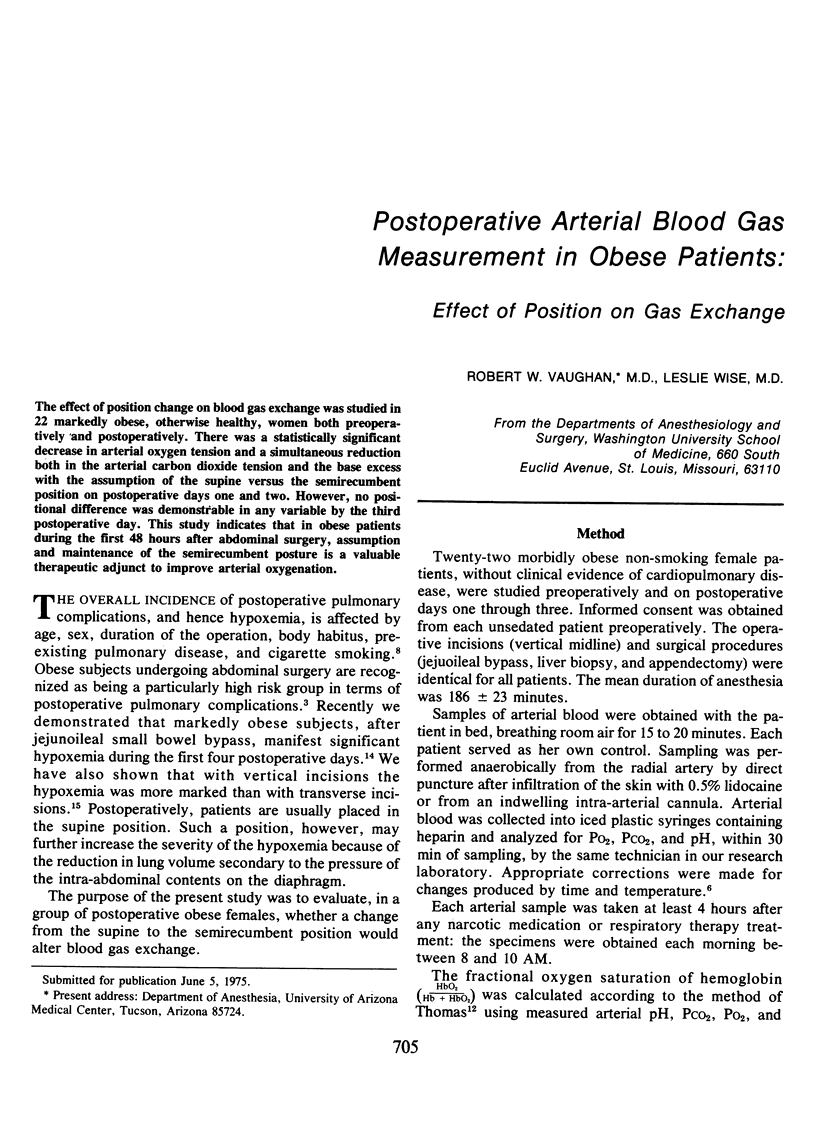
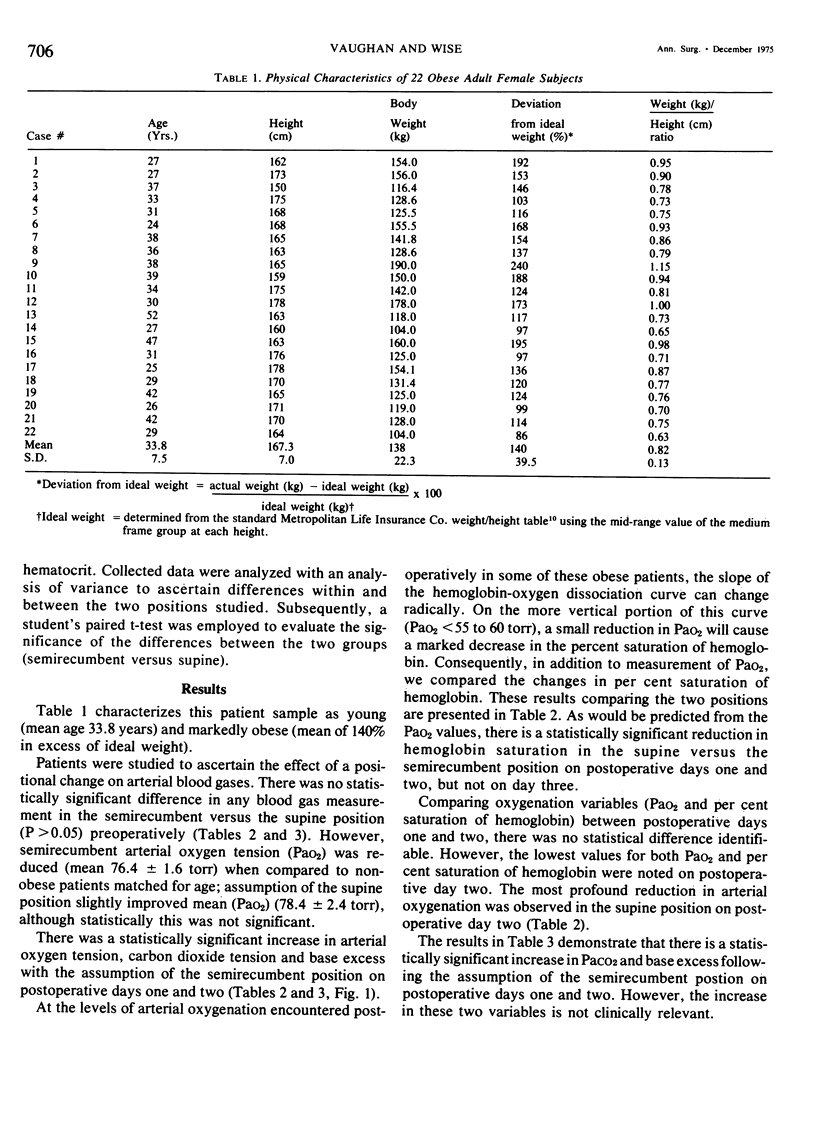
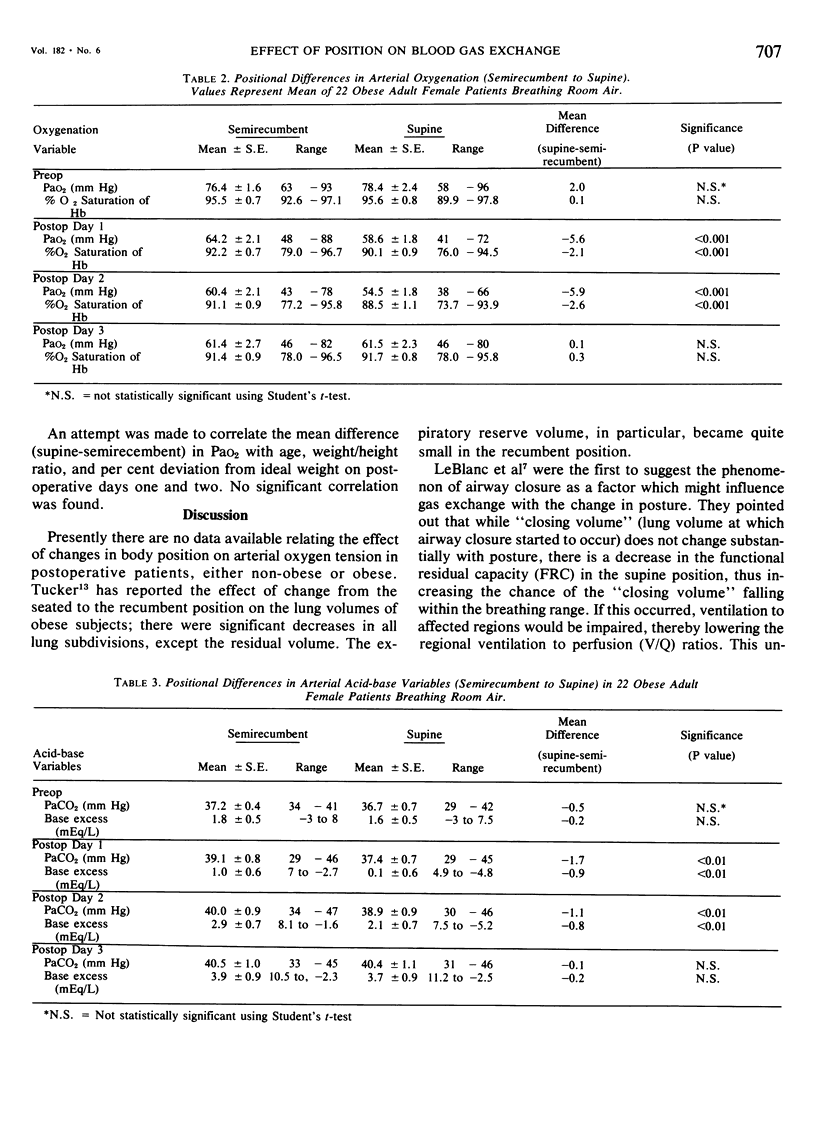
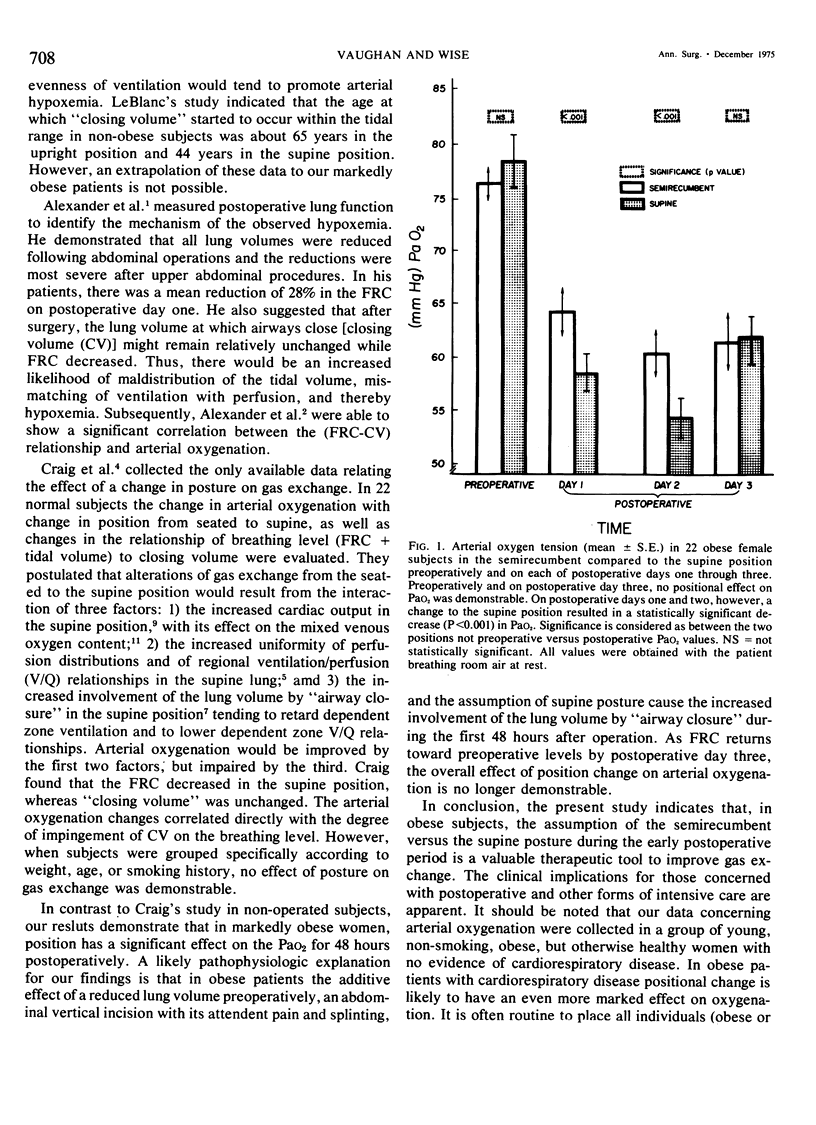
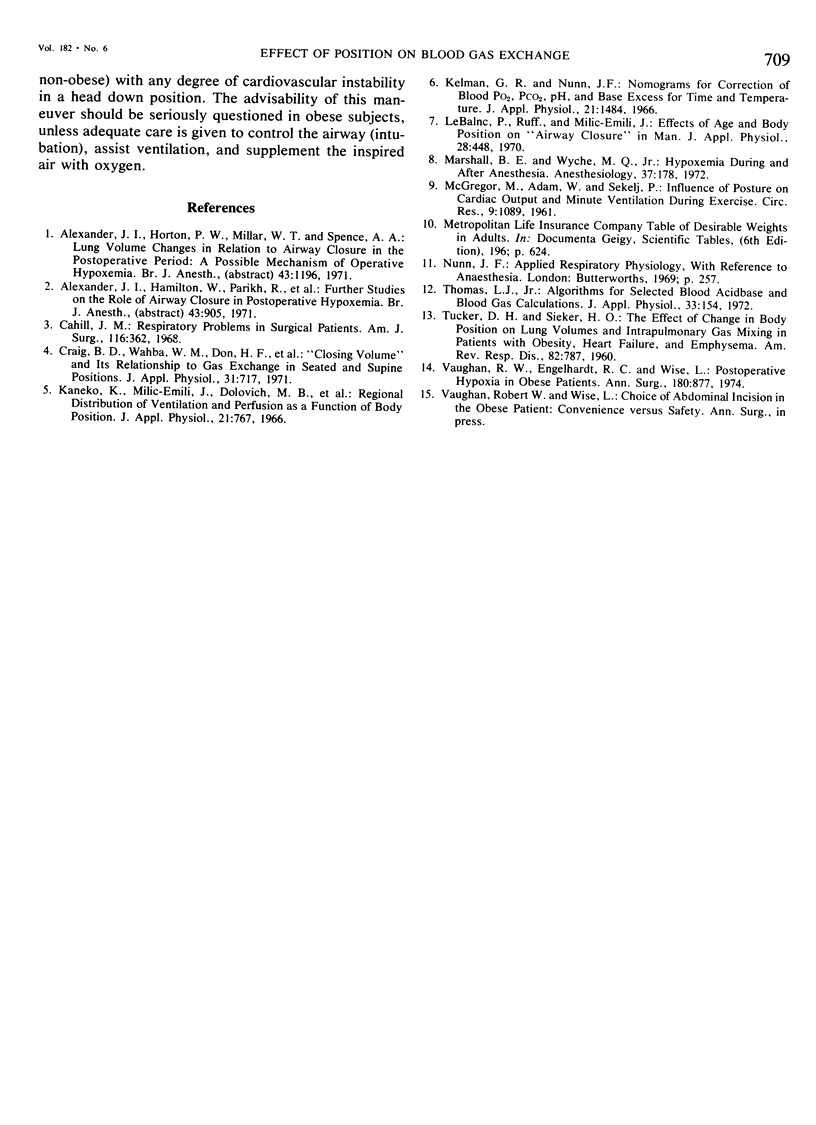
Selected References
These references are in PubMed. This may not be the complete list of references from this article.
- Alexander J. I., Horton P. W., Millar W. T., Spence A. A. Lung volume changes in relation to airway closure in the postoperative period: a possible mechanism of postoperative hypoxaemia. Br J Anaesth. 1971 Dec;43(12):1196–1197. [PubMed] [Google Scholar]
- Craig D. B., Wahba W. M., Don H. F., Couture J. G., Becklake M. R. "Closing volume" and its relationship to gas exchange in seated and supine positions. J Appl Physiol. 1971 Nov;31(5):717–721. doi: 10.1152/jappl.1971.31.5.717. [DOI] [PubMed] [Google Scholar]
- Kaneko K., Milic-Emili J., Dolovich M. B., Dawson A., Bates D. V. Regional distribution of ventilation and perfusion as a function of body position. J Appl Physiol. 1966 May;21(3):767–777. doi: 10.1152/jappl.1966.21.3.767. [DOI] [PubMed] [Google Scholar]
- Kelman G. R., Nunn J. F. Nomograms for correction of blood Po2, Pco2, pH, and base excess for time and temperature. J Appl Physiol. 1966 Sep;21(5):1484–1490. doi: 10.1152/jappl.1966.21.5.1484. [DOI] [PubMed] [Google Scholar]
- Leblanc P., Ruff F., Milic-Emili J. Effects of age and body position on "airway closure" in man. J Appl Physiol. 1970 Apr;28(4):448–451. doi: 10.1152/jappl.1970.28.4.448. [DOI] [PubMed] [Google Scholar]
- Marshall B. E., Wyche M. Q., Jr Hypoxemia during and after anesthesia. Anesthesiology. 1972 Aug;37(2):178–209. doi: 10.1097/00000542-197208000-00009. [DOI] [PubMed] [Google Scholar]
- TUCKER D. H., SIEKER H. O. The effect of change in body position on lung volumes and intrapulmonary gas mixing in patients with obesity, heart failure, and emphysema. Am Rev Respir Dis. 1960 Dec;82:787–791. doi: 10.1164/arrd.1960.82.6.787. [DOI] [PubMed] [Google Scholar]
- Thomas L. J., Jr Algorithms for selected blood acid-base and blood gas calculations. J Appl Physiol. 1972 Jul;33(1):154–158. doi: 10.1152/jappl.1972.33.1.154. [DOI] [PubMed] [Google Scholar]
- Vaughan R. W., Engelhardt R. C., Wise L. Postoperative hypoxemia in obese patients. Ann Surg. 1974 Dec;180(6):877–882. doi: 10.1097/00000658-197412000-00014. [DOI] [PMC free article] [PubMed] [Google Scholar]


